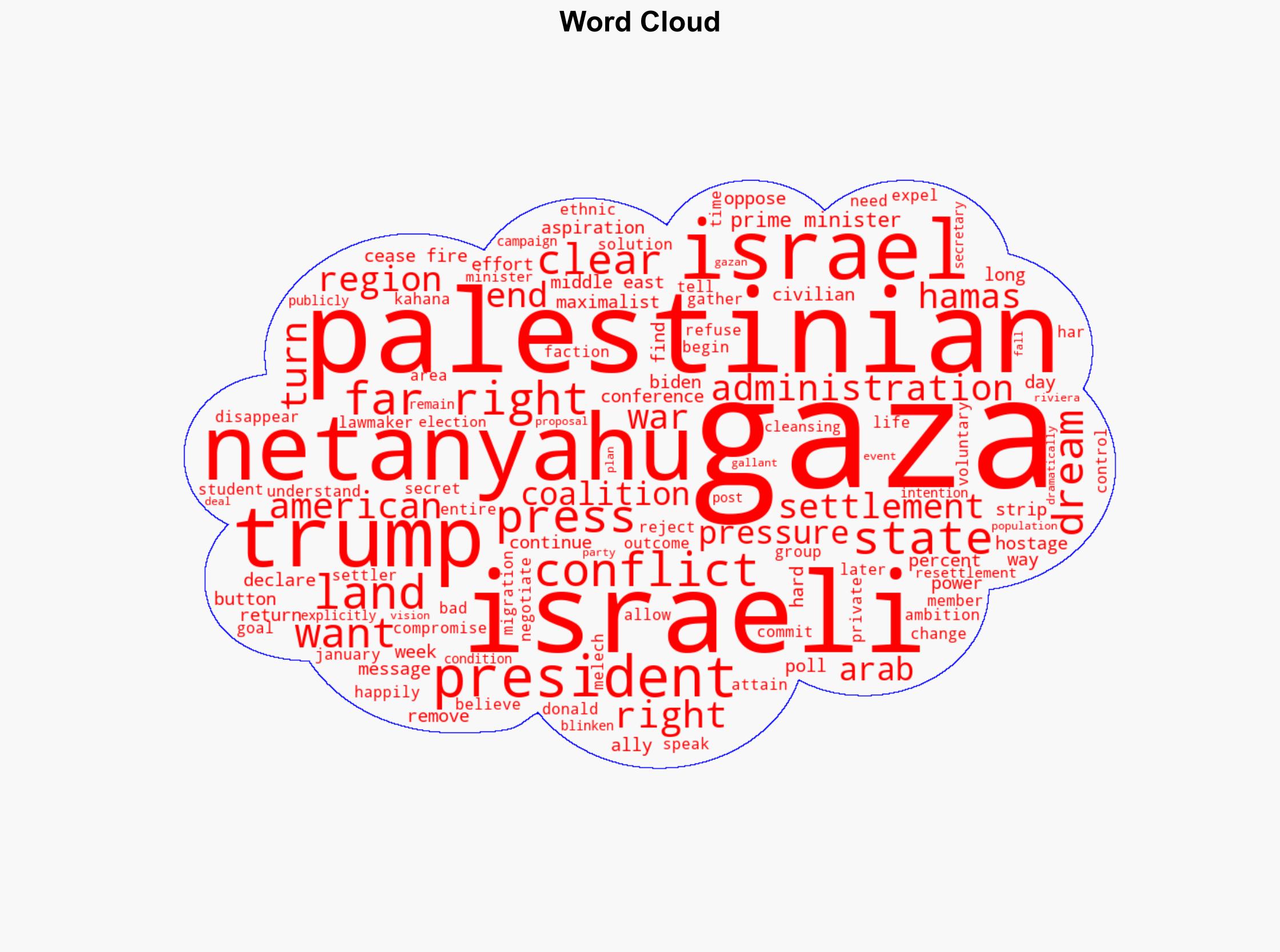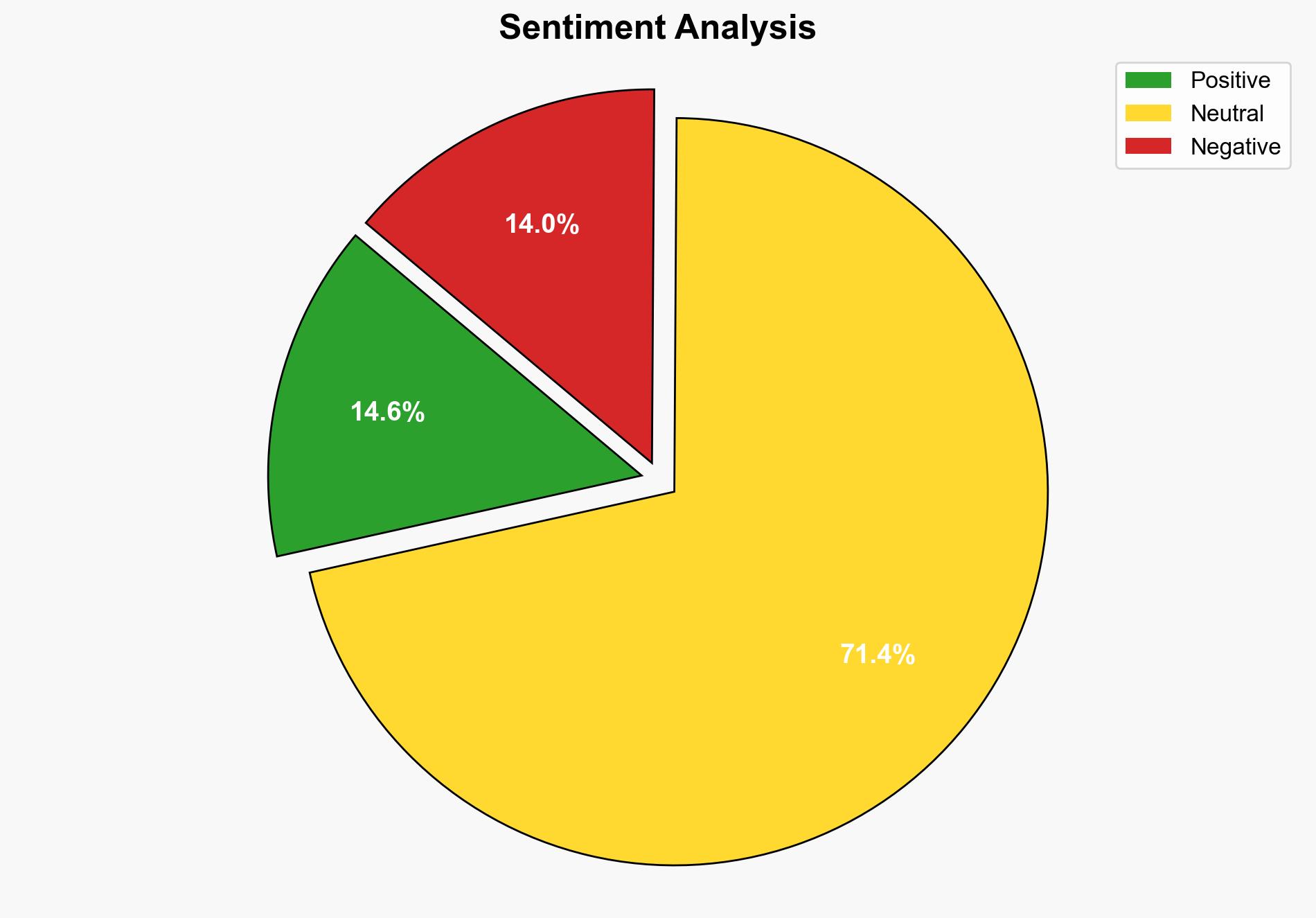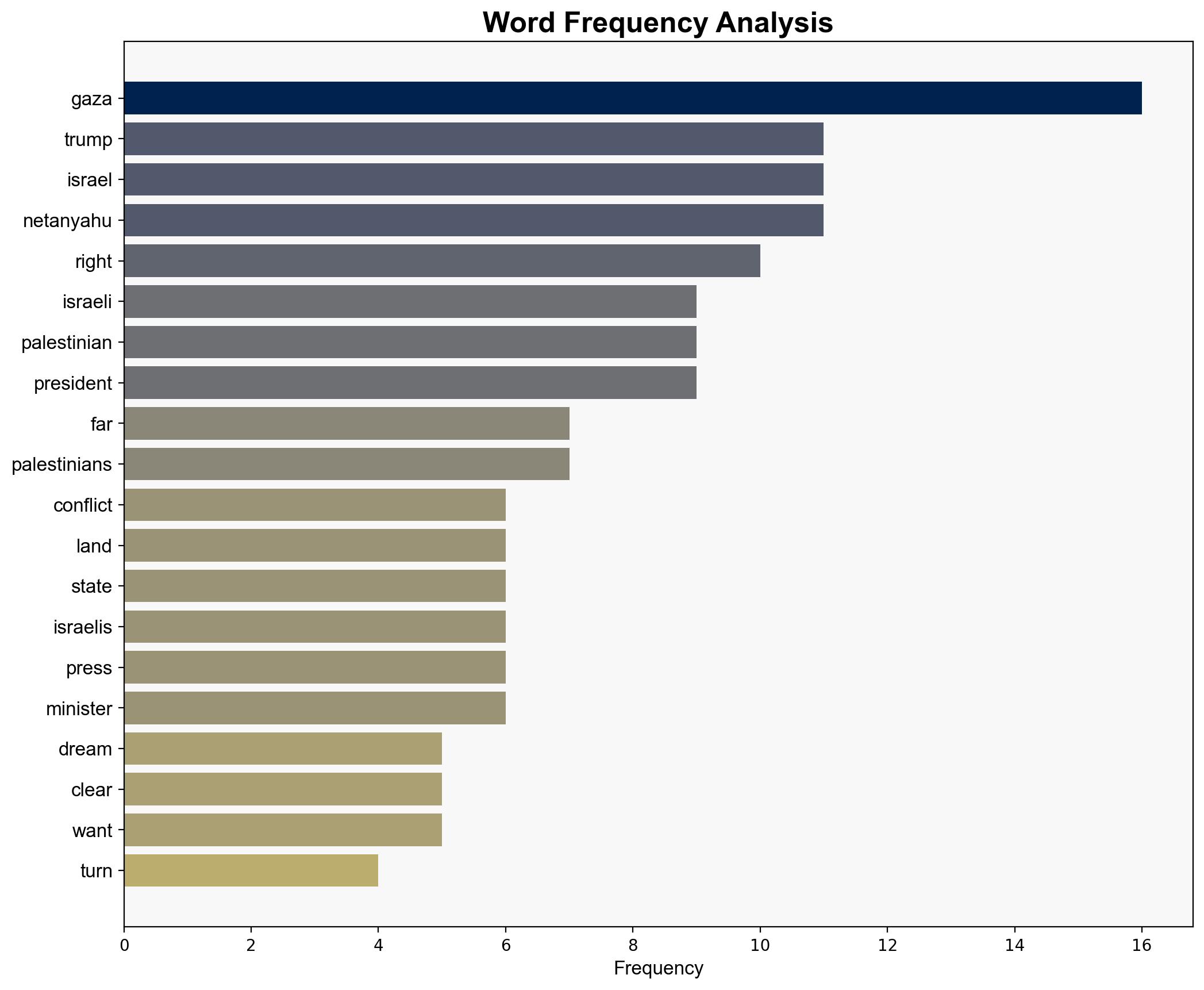The Worst-Kept Secret of the Israeli-Palestinian Conflict – The Atlantic
Published on: 2025-07-24
Intelligence Report: The Worst-Kept Secret of the Israeli-Palestinian Conflict – The Atlantic
1. BLUF (Bottom Line Up Front)
The strategic judgment indicates a moderate confidence level in the hypothesis that the current Israeli government, under Benjamin Netanyahu, is moving towards policies that could exacerbate tensions with Palestinians, potentially leading to increased conflict. The recommended action is to encourage diplomatic engagement and multilateral discussions to prevent escalation. This report uses structured analytic techniques to ensure analytic rigor.
2. Competing Hypotheses
1. **Hypothesis A**: The Israeli government is intentionally pursuing policies that could lead to the annexation of Palestinian territories and potential ethnic cleansing, as indicated by rhetoric from right-wing politicians and actions in Gaza.
2. **Hypothesis B**: The Israeli government’s actions are primarily driven by internal political dynamics and the need to maintain a fragile coalition, rather than a strategic plan for territorial expansion or ethnic cleansing.
Using the Analysis of Competing Hypotheses (ACH) 2.0, Hypothesis A is moderately supported due to explicit statements from right-wing politicians and recent military actions in Gaza. Hypothesis B is also plausible, given Netanyahu’s reliance on far-right factions to maintain power.
3. Key Assumptions and Red Flags
– **Assumptions**: It is assumed that public statements by politicians reflect actual policy intentions. Another assumption is that internal political pressures are the primary drivers of external policy.
– **Red Flags**: The potential bias in interpreting political rhetoric as policy intention. The lack of explicit policy documents supporting territorial expansion raises questions about the true strategic goals.
– **Blind Spots**: The international community’s potential responses are not fully considered, which could alter the strategic landscape significantly.
4. Implications and Strategic Risks
– **Patterns**: Increasing alignment between Israeli far-right rhetoric and policy actions suggests a trend towards more aggressive territorial policies.
– **Cascading Threats**: Potential for increased violence and instability in the region, with broader geopolitical ramifications involving neighboring countries.
– **Escalation Scenarios**: Unchecked, these policies could lead to widespread conflict, drawing in regional and global powers.
– **Dimensions**: Economic sanctions, cyber warfare, and psychological impacts on both Israeli and Palestinian populations could emerge as significant factors.
5. Recommendations and Outlook
- Encourage multilateral diplomatic efforts to address underlying tensions and prevent unilateral actions that could lead to escalation.
- Scenario-based projections:
- **Best Case**: Renewed peace talks leading to a sustainable two-state solution.
- **Worst Case**: Full-scale conflict resulting in significant regional destabilization.
- **Most Likely**: Continued low-level conflict with periodic escalations.
6. Key Individuals and Entities
– Benjamin Netanyahu
– Matan Kahana
– Limor Son Har Melech
– Hamas
7. Thematic Tags
national security threats, regional focus, geopolitical strategy, conflict escalation





